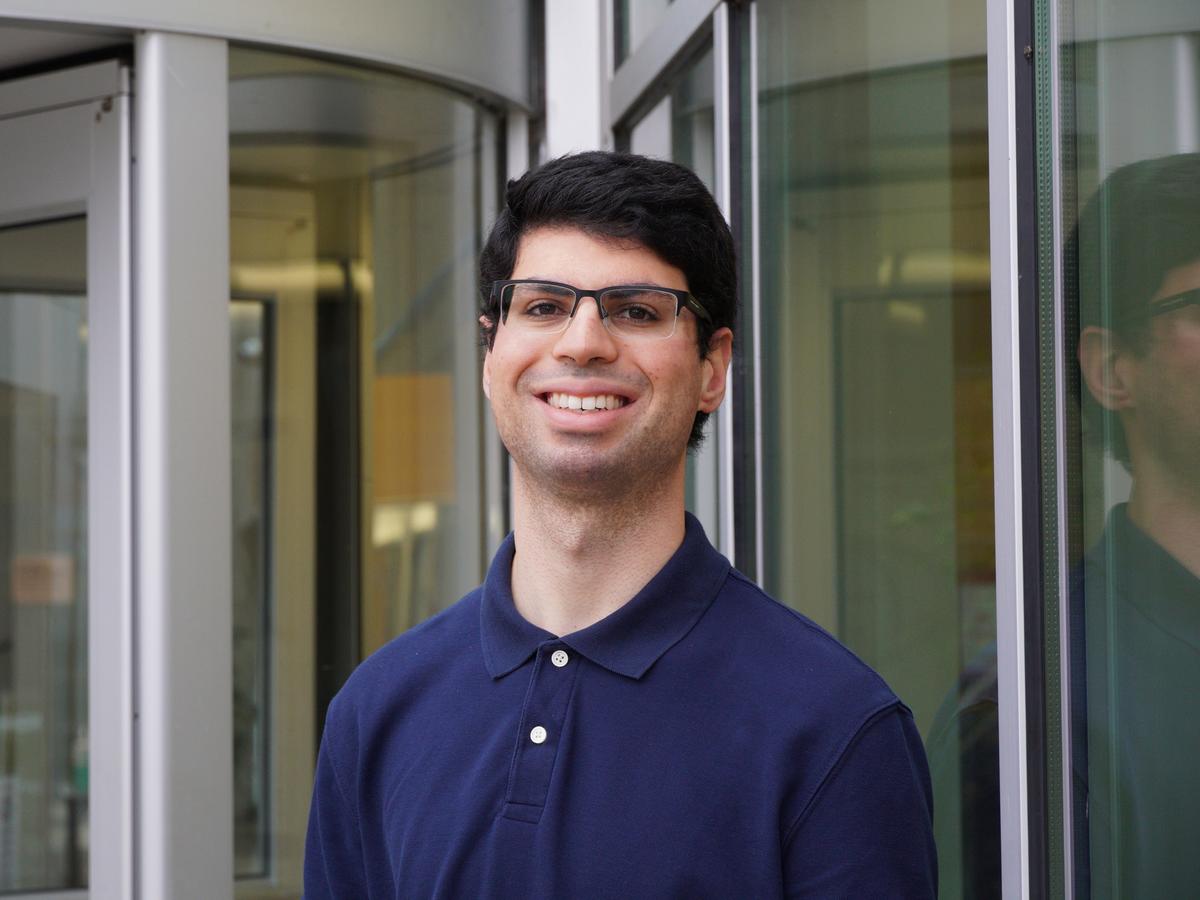UMD student Jubran Jindeel’s involvement in the medical field began not in a school or a lab, but in a tent. While attending high school in Duluth, Jindeel went on a series of medical mission trips to St. Louis, Missouri, and Eustis, Florida, where he helped to provide medical services to those who couldn’t afford it.
"Working in the vision department, I helped patients to select glass frames and cut lenses, and saw first-hand how life-changing a pair of new glasses can be. Experiencing the joy of first-time wearers had a great impact on me, driving me to want to improve people’s lives through medicine, both by contributing to scientific advances in medicine and providing access to quality healthcare."
Jindeel’s aspirations have always drawn him towards medical school, but he wasn't always sure how to get there. That was until he found out about the Bridges to the Baccalaureate Program.
Stepping Stones from a Path
The Bridges Program, and its companion program Pathways, provide students at UMD, Lake Superior College, and the Fond du Lac Tribal and Community College with training in laboratory-based research. The programs are held in partnership with the University of Minnesota Medical School, Duluth Campus, and provide stepping stones to assist college students pursuing a degree in the biomedical science field. In the case of Jindeel, it did just that.
Jindeel found out about the opportunity through the Lake Superior College Bridges Program coordinator. Once he was accepted, Jindeel began a summer course in research methods and public speaking.
“The thought is that researchers can’t only be good at doing lab work, but also at communicating why their work is important to the public,” said Jindeel. The program encourages these skills by asking trainees to present their research at a national science meeting. Additionally, each student receives a supply budget for their research.
Diving Deeper into Tick Research
After earning his associate’s degree from Lake Superior College, Jindeel continued his education in the biology program at UMD where he continued in the Bridges program. In addition to having a more diversified skill set, the Bridges program also allows students to select a mentor to help them continue their research. Jindeel chose Ben Clarke.
Clarke is the head of the Bridges Program at UMD, and he takes a very hands-on approach. So when it came time for Jindeel to choose a mentor he seemed like the obvious choice. “Ben’s lab was at UMD’s medical school, which is exactly the type of environment I wanted to be in,” he said. “I’ve basically been in the lab ever since.”
With Clarke as his mentor, Jindeel presented research on Lyme disease, a bacterial infection transmitted by deer ticks in North America. Part of his research was to develop a DNA test that would determine if ticks carry the bacteria. These tests were performed on ticks collected by Clarke and his students, and the data collected in this research will be used to develop a map of high-risk areas for developing Lyme disease in Minnesota and northern Wisconsin.
In 2019, Jindeel presented his Lyme disease research at the annual Biomedical Research Conference for Minority Students (ABRCMS), the largest student-focused biomedical conference in North America.
Next Stop, Medical School
Jindeel graduates in May 2022 with a bachelor of science in biology and a minor in music. With years of research experience at UMD, he is shifting his focus towards medical school. While it's too early to say where Jindeel will land next, it's certain he has many more adventures in his future.
----
About the UMD Department of Biology
This story was written by UMD student Jack Wiedner, who is majoring in journalism and political science. Jack works with Cheryl Reitan in University Marketing and Public Relations.
